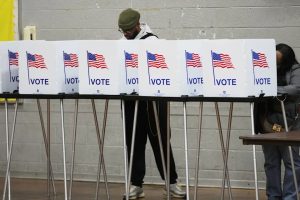Opinion – The government may not open again this year, thanks to Speaker Johnson

The government shutdown is now officially the longest on record, surpassing the previous record of 34 days that occurred during President Trump’s first term in office. That shutdown, which lasted from Dec. 22, 2018, through Jan. 25, 2019, ended when the president backed down on his border wall funding demands.
It is becoming clear that there are no obvious concessions available at this time that can lead to the government opening any time soon.
Speaker Mike Johnson (R-La.) sent all House members home just before Oct. 1, placing the chamber in recess. This strategy meant that the only way for the government to avoid being shut down was for the Senate to garner the 60 votes needed to approve the “clean” continuing resolution passed by the House. Once the government shut down, the Senate was forced to vote on the resolution, with the House in recess and unable to make any amendments. To date, the Senate has held more than a dozen votes, with each falling short of the requisite 60 votes.
The continuing resolution is considered “clean” because it contains nothing more than an extension of existing government funding through Nov. 21. Democrats are asking for changes that would extend subsidies associated with the Affordable Care Act, which were not included in Trump’s “One Big Beautiful Bill.”
With Nov. 21 fast approaching, however, passing the current continuing resolution is becoming a moot point. Even if it does pass, it would give the House little time to craft yet another resolution that would be needed to fund the government into 2026. Senate Democrats have sent a clear message of what they would expect in such a continuing resolution, but there is no evidence it could pass the House.
What’s more, Johnson has a vested interest in keeping the government closed and the House in recess. Since inauguration day, the Speaker has demonstrated an unwavering loyalty to appease the president’s every desire, want and wish. There are advantages for Trump having the House in permanent recess. Johnson can avoid seating recently elected Rep. Adelita Grijalva (D-Ariz); with the House in recess and Grijalva not seated, the House cannot finalize the process leading to the Epstein files being released.
Johnson has gone on the record that he will not block a vote on releasing the files on the late sexual predator Jeffrey Epstein. But such a statement is disingenuous and irrelevant, as Johnson knows. If there are 218 signatures on the discharge petition to release all files related to Epstein, the Johnson cannot stop such a vote under House rules.
In the current environment, the Speaker’s best hope is that some of the Republicans among the 218 signers will change their minds. If any one of them does so, the discharge petition will fall short of the required number of signatures. Ironically, the less risky alternative for him is for the government to remain shut down so that he can keep the House in recess. This effectively places the entire country in a state of limbo, holding government workers and the American people hostage.
Johnson has made only one pathway available for the shutdown to end: for the Senate to approve the current continuing resolution, which appears highly unlikely. His unspoken plan appears to be to keep the government shut down indefinitely. And because the Speaker so loyally defers to the president, this shifts all power of government to the executive branch, with no congressional checks or balances in place on the president’s actions.
The takeaway from the current situation is that this government shutdown is poised to be more than a transient event. It is already the longest in our nation’s history, driven in large part by what may become the longest House recess on record. It has positioned our country for a transformation of how our government functions, and where the seat of power lies. What is certain is that this power no longer rests with the people.
Sheldon H. Jacobson, Ph.D., is a computer science professor in the Grainger College of Engineering at the University of Illinois Urbana-Champaign. As a data scientist, he uses his expertise in risk-based analytics to address issues impacting public policy.
Copyright 2025 Nexstar Media, Inc. All rights reserved. This material may not be published, broadcast, rewritten, or redistributed.
For the latest news, weather, sports, and streaming video, head to The Hill.


